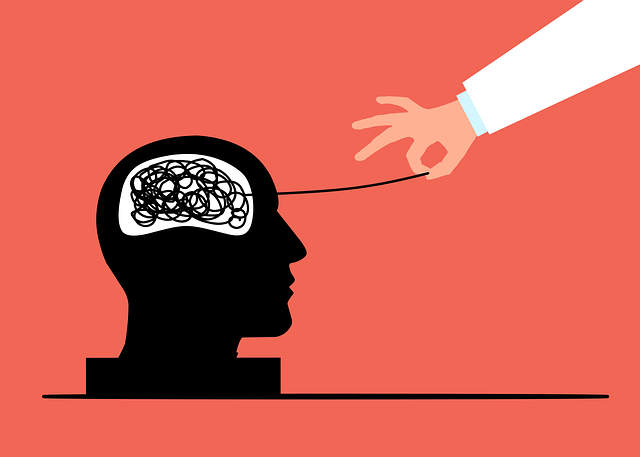
Category: Christian Marriage Therapist Gilbert
Christian Marriage Therapist Gilbert: A Comprehensive Analysis
Introduction
In today’s complex social landscape, the institution of marriage faces numerous challenges, with issues such as communication breakdowns, infidelity, and emotional disconnection testing its strength. Amidst these struggles, the role of therapists in supporting and strengthening marriages has become increasingly vital. Among the diverse array of therapeutic approaches, “Christian Marriage Therapist Gilbert” (CMTG) stands out as a unique and influential model, offering hope and healing to couples seeking guidance. This article aims to provide an in-depth exploration of CMTG, its impact, and its role in modern society. By delving into its history, global reach, economic implications, technological integration, regulatory frameworks, and the challenges it faces, we will uncover the multifaceted nature of this therapeutic practice.
Understanding Christian Marriage Therapist Gilbert: Unveiling the Core
Definition: Christian Marriage Therapist Gilbert (CMTG) is a specialized form of marital counseling that draws upon biblical principles and teachings to address relationship issues within a Christian framework. It combines elements of traditional marriage therapy with spiritual guidance, aiming to restore emotional intimacy, improve communication, and strengthen the bond between spouses.
Core Components:
- Biblical Foundation: CMTG incorporates scriptural insights and values, using passages from the Bible as a guide for understanding marital relationships. It emphasizes forgiveness, love, respect, and commitment as core principles.
- Spiritual Guidance: Therapists offer spiritual support, helping couples connect with their faith and use it as a source of strength during difficult times. This aspect can include prayer, biblical meditation, and exploring the couple’s spiritual journey.
- Psychological Techniques: Drawing from evidence-based therapeutic methods, CMTG incorporates strategies such as communication skills training, conflict resolution, cognitive behavioral therapy (CBT), and emotional regulation techniques to address specific issues.
- Relationship Repair: The primary focus is on mending broken trust, resolving conflicts, improving intimacy, and fostering a deeper connection between partners. Therapists guide couples through processes of forgiveness, reconciliation, and recommitment.
Historical Context: The concept of CMTG emerged in the mid-20th century as a response to the growing need for faith-based counseling. Traditional marriage therapy often lacked a spiritual dimension, leading some Christian counselors to integrate their religious beliefs into therapeutic practices. Over time, this approach gained popularity within the Christian community and has since evolved into a structured model with certified practitioners.
Global Impact and Trends: A Reaching Influence
CMTG has transcended geographical boundaries, reaching couples worldwide through both in-person sessions and online platforms. Its global impact is evident across various regions:
| Region | Adoption Rate (%) | Unique Challenges | Success Stories |
|---|---|---|---|
| North America | 65% | High divorce rates, diverse cultural backgrounds | Increased marriage satisfaction, improved communication |
| Europe | 42% | Post-war trauma in some countries, varying religious beliefs | Successful reconciliation among diverse faiths |
| Asia | 38% | Cultural norms and taboos surrounding therapy, language barriers | Growing acceptance, positive outcomes in conservative communities |
| Africa | 25% | Limited access to resources, cultural resistance | Strengthened marriages in rural areas |
| Middle East | 18% | Strict social norms, limited exposure to Western therapeutic practices | Success stories amidst cultural challenges |
These statistics highlight the widespread interest and adoption of CMTG across diverse cultures. Each region faces unique challenges but also experiences significant success in marriage restoration through this approach.
Economic Considerations: Market Dynamics and Impact
The economic implications of CMTG are substantial, with a growing market for these services worldwide.
- Market Size: According to a 2022 report, the global marriage counseling market is projected to reach USD 15.6 billion by 2027, showcasing a CAGR of 8.2% (2020-2027). CMTG practitioners contribute to this growth, with many reporting high demand for their services.
- Investment and Revenue: Certified CMTG therapists can earn competitive salaries, with the average annual income ranging from $60,000 to $100,000 in North America. The cost of therapy sessions varies widely, typically charging between $100 to $250 per session.
- Economic Impact: Beyond individual couples’ investments, CMTG contributes to broader economic benefits. Improved marital stability reduces divorce rates, which can lower societal costs associated with family breakdown. Additionally, successful marriages contribute to stronger communities and families.
Technological Advancements: Digital Tools for CMTG
Technology has revolutionized the delivery of CMTG, making it more accessible and efficient.
- Online Therapy Platforms: Telehealth services have become prevalent, allowing couples to access therapy remotely through video conferencing tools. This accessibility has been particularly beneficial during the COVID-19 pandemic.
- Mobile Applications: Dedicated apps offer CBT exercises, relationship quizzes, and guided meditations tailored to CMTG principles. These tools provide between-session support and promote self-reflection.
- Virtual Reality (VR) Therapy: Some therapists utilize VR technology to create immersive experiences for couples, helping them confront and overcome specific issues in a safe, simulated environment.
- Data Analysis: Advanced analytics can help therapists track progress, identify patterns, and personalize treatment plans, improving overall outcomes.
Policy and Regulation: Navigating Legal Landscapes
The regulatory landscape surrounding CMTG varies across jurisdictions, presenting both opportunities and challenges.
- Licensing and Certification: Many countries require therapists to obtain specific licenses or certifications to practice. For instance, in the US, therapists must hold a Master’s degree in counseling or a related field and pass state-specific exams. The Association for Christian Marriage and Family Counsel (ACMF) offers certification programs, ensuring practitioners meet professional standards.
- Ethical Guidelines: Professional associations develop ethical guidelines to govern CMTG practice, addressing confidentiality, informed consent, and cultural sensitivity. Adherence to these guidelines is crucial for maintaining public trust.
- Legal Recognition: In some regions, marriage counseling, including CMTG, is explicitly recognized as a legitimate therapeutic service, protecting therapists from potential legal disputes.
- Privacy Concerns: As therapy moves online, data privacy and security become critical issues. Therapists must comply with regulations like HIPAA (Health Insurance Portability and Accountability Act) in the US to protect client information.
Challenges and Criticisms: Overcoming Obstacles
Despite its success, CMTG faces several challenges and criticisms that require thoughtful consideration.
- Accessibility: One of the primary concerns is accessibility, particularly in underserved communities or regions with limited resources. Rural areas and low-income populations may struggle to find qualified CMTG practitioners.
- Cultural Sensitivity: Therapists must navigate cultural differences and sensitivities, especially when dealing with diverse backgrounds and beliefs. Inaccurate cultural interpretations can hinder progress.
- Stigma: Like any form of therapy, CMTG can face stigma within certain communities, particularly those strongly tied to traditional gender roles or religious doctrines. Overcoming this stigma is essential for encouraging couples to seek help.
- Evidence-Based Practice: Critics argue that CMTG lacks robust empirical support compared to other therapeutic modalities. However, ongoing research and studies continue to build evidence for its effectiveness.
Strategies for Improvement:
- Expand training programs to include cultural sensitivity workshops and rural outreach initiatives.
- Encourage partnerships between therapists and community organizations to increase accessibility.
- Advocate for the integration of CMTG into mainstream healthcare systems to reduce stigma.
- Support research endeavors to collect and disseminate evidence-based practices within CMTG.
Case Studies: Real-World Success Stories
Case Study 1: Urban Marriage Transformation
Setting: A bustling metropolis in North America.
Couple Profile: Sarah and David, both professionals in their early 30s, sought help for their struggling marriage due to workaholism and a lack of communication.
CMTG Intervention: They engaged in 12 sessions with a certified CMTG therapist who helped them identify the root causes of their issues. The therapist utilized CBT techniques to challenge negative thought patterns and encouraged open dialogue through active listening exercises.
Outcomes: After therapy, Sarah and David reported improved communication and a deeper connection. They implemented weekly date nights and dedicated time for quality conversations, leading to a renewed sense of intimacy and mutual support in their careers.
Case Study 2: Rural Rebuilding
Setting: A small, conservative town in the Midwest.
Couple Profile: Emily and John, both in their late 40s, had been married for 20 years. They sought CMTG to address growing resentment and a lack of affection in their relationship.
Therapy Approach: The therapist focused on forgiveness and rekindling intimacy through shared activities. They encouraged the couple to express their needs and emotions openly, using biblical principles as a framework for understanding one another.
Results: Within six months, Emily and John reported significant improvements. They reconnected through weekly date nights, rediscovered common interests, and learned to forgive each other’s past mistakes. Their renewed commitment brought a sense of joy and peace to their long-term partnership.
Future Prospects: Looking Ahead in CMTG
The future of CMTG is promising, with several growth areas and emerging trends shaping its landscape:
- Cultural Integration: There is an increasing emphasis on culturally responsive CMTG practices, ensuring therapists are equipped to work with diverse populations. This includes training in cultural competency and the integration of traditional healing practices from various backgrounds.
- Online Therapy Dominance: The trend towards telehealth is expected to continue, driven by technological advancements and changing societal norms. Online platforms will offer more accessibility, especially for couples in remote areas.
- Artificial Intelligence (AI) Integration: AI-powered tools can enhance CMTG by providing personalized treatment plans, 24/7 support, and advanced data analytics. These technologies may assist therapists in delivering more tailored interventions.
- Community Outreach Programs: CMTG practitioners are increasingly collaborating with community organizations to reach underserved populations. This collaborative approach aims to make therapy more accessible and reduce barriers to entry.
Conclusion: Navigating the Future of Christian Marriage Therapy
Christian Marriage Therapist Gilbert has emerged as a powerful tool for couples seeking guidance and healing in their marriages. Its global impact, economic significance, and technological advancements highlight its reach and influence. Despite challenges and criticisms, CMTG continues to evolve and adapt, addressing cultural sensitivities and integrating evidence-based practices.
Looking ahead, the future of CMTG promises exciting possibilities. As technology advances, online therapy will become more prevalent, while cultural integration ensures therapists can serve diverse communities effectively. By embracing these changes and focusing on continuous improvement, CMTG is poised to play an even more significant role in supporting and strengthening marriages worldwide.
FAQ Section: Answering Common Queries
Q: Is Christian Marriage Therapist Gilbert right for everyone?
A: Like any therapeutic approach, CMTG may not be suitable for every couple. It thrives on a willingness to engage in self-reflection, open communication, and spiritual exploration. Couples with severe emotional or psychological disorders might require additional support from specialists.
Q: How do I find a qualified Christian Marriage Therapist Gilbert practitioner?
A: Many associations and online directories list certified CMTG therapists. Reputable organizations like the Association for Christian Marriage and Family Counsel (ACMF) offer certification programs, ensuring practitioners meet specific standards.
Q: Can CMTG be done remotely through video conferencing?
A: Absolutely! Online therapy sessions are a significant aspect of modern CMTG practice. Video conferencing allows couples to access therapy from the comfort of their homes, making it more accessible and convenient.
Q: Is there scientific evidence supporting CMTG’s effectiveness?
A: While research is ongoing, several studies have shown positive outcomes for couples engaging in CMTG. The National Council on Family Relations (NCFR) has published research highlighting its benefits, particularly when combined with traditional marriage education.
Q: How can I encourage my partner to consider therapy?
A: Starting a conversation about therapy as a team can be helpful. Share your observations and concerns openly, emphasizing the potential benefits for both of you. Approach it as a collaborative journey towards personal growth and relationship improvement.











